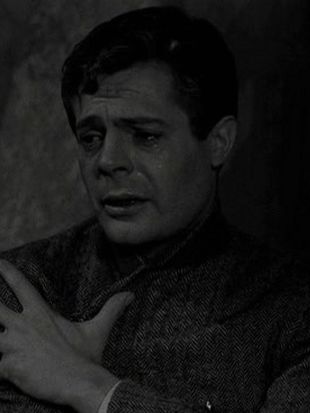
Le Notti Bianche is early Luchino Visconti, when the master was at the peak of his powers. Based on a novel by Fyodor Dostoyevsky, and with the unusual and highly theatrical casting of Marcello Mastroianni, Maria Schell, and Jean Marais (who rarely popped up outside the world of Jean Cocteau), this moody black-and-white film documents the existential relationship between Mario (Mastroianni) and Natalia (Schell). The film was shot on transparently stylized sets, in a marked departure from Visconti's earlier, grittier films, particularly Ossessione (1943), Visconti's version of The Postman Always Rings Twice (which he shot without first obtaining the rights to the novel, much to the displeasure of author James M. Cain and MGM, who were then making their own version of the novel with director Tay Garnett). In early Visconti, life is drab, violent, and owes much to the works of neorealists Roberto Rossellini and Vittorio De Sica. Here, we are in a different world altogether, one of studied artificiality which seems to exist outside of time. Mario loves Natalia, but her heart belongs to another; how will the matter be resolved? The film is not so much a straightforward narrative as it is a meditation on the act of being in love, and the consequences of unrequited passion coupled with senseless devotion. Yet the entire film seems to take place in some sort of limbo; nothing is real, except for the performers. This is Visconti at his most ethereal, and marks the beginning of his increasing interest in stylization in the cinema. This film fell between the cracks of cinema history for a long time, but has since been issued in a superb DVD edition; it is well worth viewing as a remarkable example of a cinematic fabulist at work.
